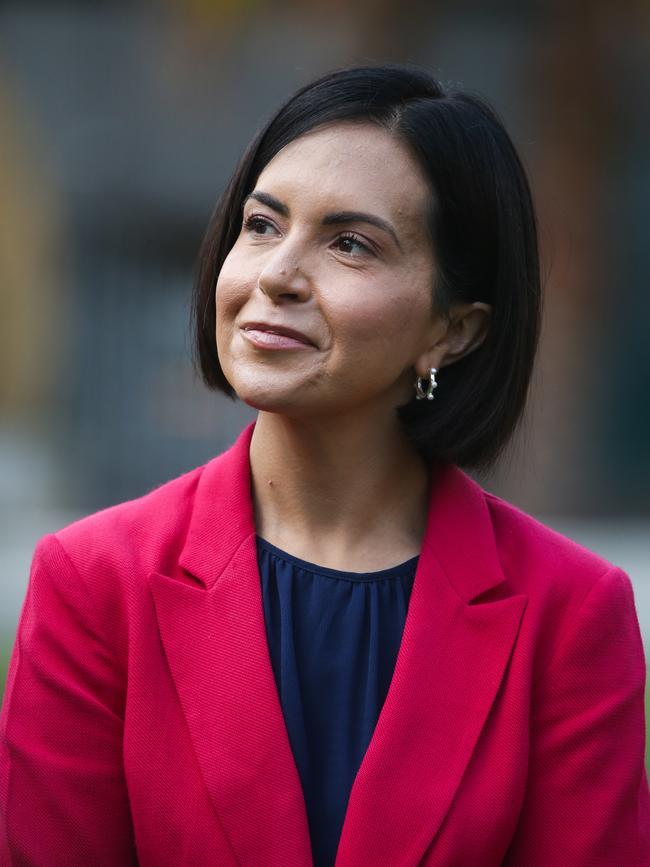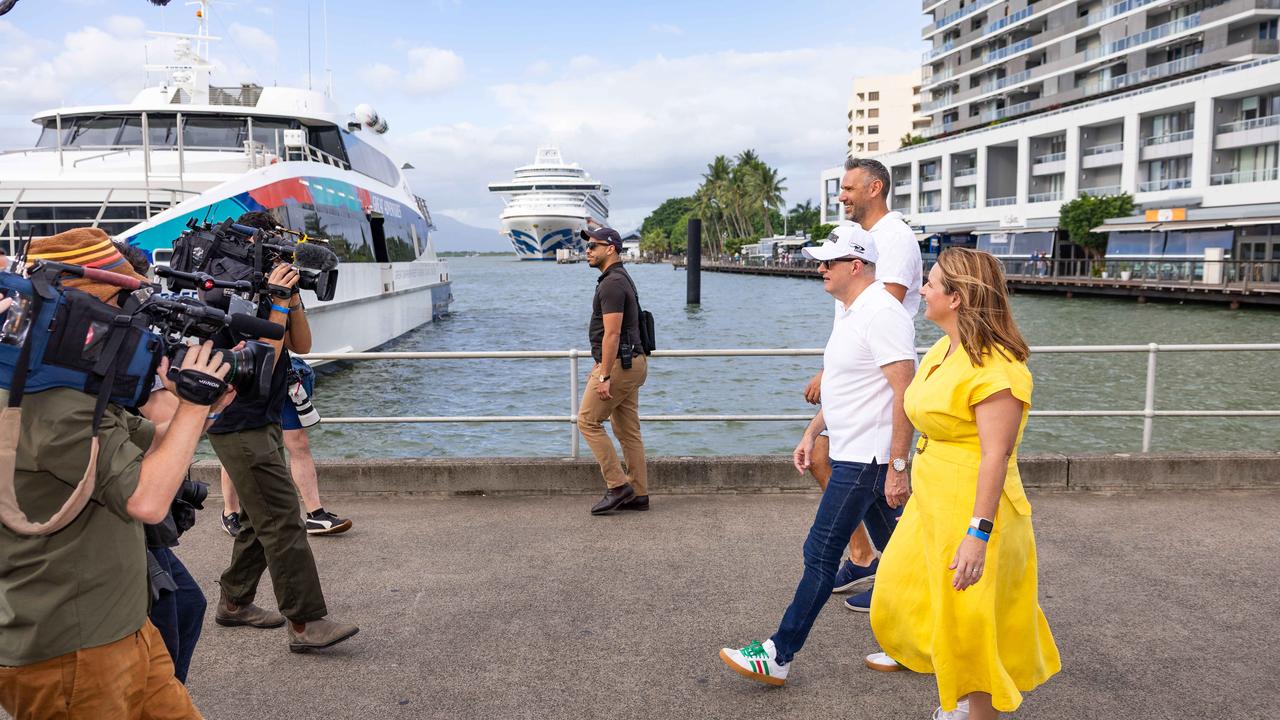State ministers refuse to commit to catch-up tutoring for every struggling student
State education ministers have refused to set national targets to lift students’ alarmingly low levels of literacy and numeracy, but will push for $6.8bn a year in extra taxpayer funding.

State education ministers have refused to set national targets to lift students’ alarmingly low levels of literacy and numeracy, but will push for $6.8bn a year in extra taxpayer funding.
Federal Education Minister Jason Clare failed to win states’ commitment on Monday to guarantee catch-up tutoring for struggling students, and to integrate schools with community health hubs.
State education ministers baulked at the fine print of Mr Clare’s ambitious reform agenda for schools, forcing him to negotiate bilateral agreements with each state and territory through the National School Reform Agreement over the next year.
Mr Clare has stumbled in his bold bid to tie the spending of $72bn a year in schools funding to evidence-based reforms to teaching and learning.
The reforms – which include higher pay and less work for teachers, explicit instruction methods, the teaching of phonics, fast-tracked teaching degrees and mental health support for students – are detailed in a comprehensive report released by ministers after their meeting in Sydney on Monday. The report calls for professional recognition of teacher aides as “teaching assistants’’, who could be fast-tracked through shorter university degrees to become teachers. It says every school must provide “targeted and tailored supports delivered by appropriately trained staff – including regular screening and catch-up support – to identify and close learning gaps’’.
“Every school will use a Year 1 phonics check and an equivalent numeracy screening check,’’ the report states. “Every classroom should … support early identification of student needs, provide targeted and intensive support so students can catch up, and monitor students to ensure they keep up with their peers.’’
Mr Clare had asked ministers in the meeting to publicly agree on seven priorities for the next school reform agreement.
The top priority was “effective teaching and targeted intensive catch-up support, including small group catch-up tutoring’’. The second was high-quality training and mentoring for teachers, followed by “better linkages between schools and community and health services, such as speech and occupational therapy, with additional dedicated in-school support staff including wellbeing co-ordinators’’.
Mr Clare wanted states and territories – which have control over how government schools operate – to “address concentrations of disadvantage and incentives for our most effective teachers to work in disadvantaged schools’’. However, state and territory ministers insisted on releasing three vague priorities: “equity and excellence’’, “wellbeing for learning and engagement’’, and “a strong and sustainable workforce’’.
Queensland Education Minister Grace Grace said the report was “too detailed” for negotiations to ensure every school was funded to 100 per cent of the Schooling Resource Standard – the base level of taxpayer funding required to educate each student.
“How do I deliver (support to students) in the Torres Strait, where we’re even struggling to get teachers, let alone catch-up classes?’’ she said. “We can have a look at it, but it would take us the next 50 years to work through nearly 300 pages of stuff.’’
NSW Education Minister Prue Car said all ministers were working towards the same goal but were suffering teacher shortages. “Without enough teachers in our schools we cannot begin to implement the further improvements we all want to see,’’ she said.

Western Australia’s Education Minister, Tony Buti, said any targets would have to be addressed in bilateral agreements with each state and territory. “We all don’t have enough teachers,’’ he said.
South Australian Education Minister Blair Boyer said he had argued for more focus’ in the next reform agreement to ensure “states and territories can drive the reforms that will make the greatest difference to students’’.
Mr Boyer said South Australia needed $190m a year in extra funding for its schools.
The review panel called on governments to hand schools the missing $6.8bn a year needed to bring every school to 100 per cent of the SRS. “Underfunding of schools, and government schools in particular, is undermining other reform efforts,’’ it states. “The combination of increasing numbers of students requiring adjustments (for disability or learning difficulties), increasing numbers of students with complex needs, disruptive behaviour and students being exposed to trauma can create a complex environment for leaders, teachers and students.’’

The review found that despite the “significant efforts’’ of schools and education departments, current approaches were not providing all students with foundational literacy and numeracy skills.
The report criticises the “variable quality’’ of teaching resources and lesson plans, noting that teachers have identified gaps in the curriculum for primary school history, social sciences and sciences, as well as science, technology, engineering and mathematics in high schools.
The review calls for higher pay and better employment conditions for teachers – with incentives for those working in the most disadvantaged schools. Mr Clare said the education system must be “a lot better and a lot fairer’’.
The year-long review was chaired by Lisa O’Brien, a doctor and business executive who was the long-time chief executive of The Smith Family educational charity.
Federal opposition education spokeswoman Senator Sarah Henderson said Mr Clare had failed to secure “any agreement of substance’’. “With one in three students failing NAPLAN, a teacher shortage crisis, a deficient curriculum and classroom disruption at an all-time high, where are the reforms that the Albanese government promised?’’ she said. “Time is running out.’’




To join the conversation, please log in. Don't have an account? Register
Join the conversation, you are commenting as Logout